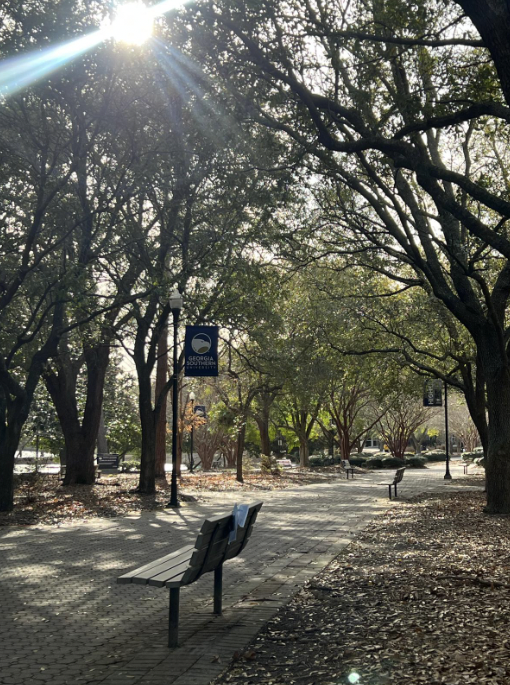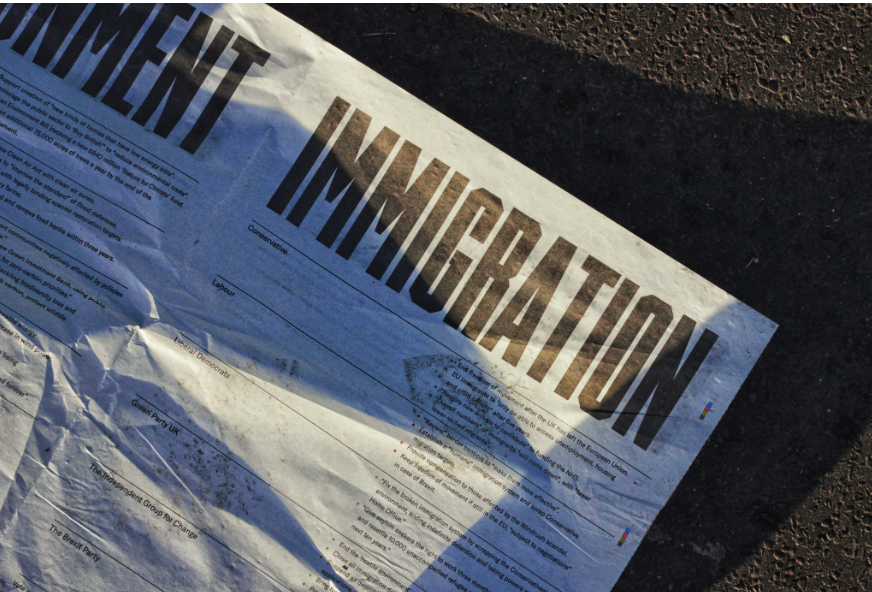On a seasonably warm September day in Statesboro, Dr. Timothy Teeter conjured up Italy.
“January here, and February, March, April in Italy,” Dr. Teeter informed me, businesslike, at the Phi Alpha Theta Book and Bake Sale last month, standing in front of a flatscreen TV in the lobby of the Interdisciplinary Academic Building. The slides behind him depicted picturesque scenes of spring across Italy, from crowded, blurry shots of Trevi Fountain to sweeping landscapes as seen from Pompeii. “You start in Siena,” he clarified. “You can go see things on your own, do your own thing. Go to Pisa, go to Ravenna.”
The trip advertised is far more than a simple Italian vacation, however. This is the Spring Semester in Italy program, part of GSU’s Office of Global Engagement study abroad catalog. Dr. Teeter, a professor in the History department, leads this trip, in partnership with the Dante Alighieri School of Siena. This upcoming Spring will be Dr. Teeter’s thirteenth and likely final time taking Georgia Southern students to Italy.
The program began as an Armstrong campus-led trip, but was consolidated due to the COVID-19 pandemic. While it has changed over the years, the heart of it remains the same: complete immersion in some of Europe’s oldest places, experiencing Italian art, history, and culture while enrolled in GSU credit hours.
A new change this year is the introduction of Health and Kinesthesiology courses to the roster, taught by Dr. Anthony Parish, giving students the flexibility to study a wider range of subjects. While by nature most of these courses are focused on history and art, the specifics will be determined based on the demographics of students enrolled in the program, making it personalized to each group.
“I think that it is of value to all students,” Dr. Teeter said. “Yes, it is of particular value to, say, a history student or an art student.”
“So why not think outside the box?” he added.
While Dr. Teeter acknowledged that the cost may be a deterrent for students, he also emphasized that it is strikingly affordable for a 90-day stay in Italy, particularly when factoring in the average student cost per regular semester. Moreover, it represents an investment in a student’s career.
“It’s been estimated that studying abroad adds six to eight thousand dollars to your salary,” he said. “It has a lot of actual value. Sell this to Mom and Dad: tell them ‘when I graduate, I will be out of your basement that much more quickly, and I will be making that much more money’.”
Applications close November 1st, and more information can be found on the program page.







